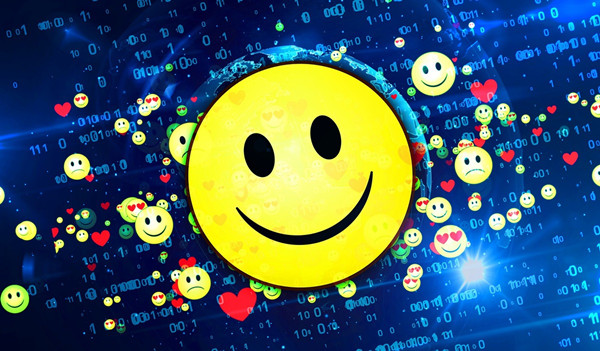Courts look at legal standing of emoji use
 |
| [Photo/IC] |
Ambiguity in usage of pictograms for agreement, consent in law examined
If your business partner sends you an OK emoji when you ask for an opinion about a contract, how would you understand its meaning? Does it signal agreement with the contract, or just that the message was received?
People may have different understandings of the emoji, which is frequently used in online chats, and misinterpretations may result in disputes and have an impact on court rulings.
Given that emojis may easily cause ambiguity, judicial and internet professionals suggest people use them prudently in online chats, especially when discussing contracts or conducting transactions.
Over the past five years, Chinese courts have handled 158 lawsuits involving online expressions, according to a statement recently posted by Jiangsu Provincial High People's Court on its WeChat account. It said the number of such cases rose from just eight in 2018 to 61 last year.
Emojis, stickers and memes-collectively known as biaoqingbao in Chinese-h(huán)ave long been a part of the social media lexicon, but interpreting them from a legal perspective is sometimes challenging, said Zhao Zhanling, a legal adviser for the Internet Society of China.
"The meaning behind some emojis may vary from one user to another, and this confuses judges sometimes," he added.
"It may be difficult to identify content, including texts, sounds and online expressions, that cannot be accurately interpreted, as evidence in civil cases."
For example, in a recent case heard by the Guangzhou Intermediate People's Court in Guangdong province, judges did not recognize an icon depicting the OK hand gesture in a contract lawsuit as legally binding, regarding it as a visual element to convey litigants' emotions during online chats rather than evidence of them agreeing to the terms, according to the Jiangsu court's statement.
But in a loan dispute in Xiamen, Fujian province, judges there recognized a similar emoji as evidence of litigants' agreement to the terms, it added.
Zhu Wei, an associate professor at the China University of Political Science and Law, highlighted the importance of context in verifying the meaning of online expressions, but he said that it would still be inappropriate to deem those emojis as key evidence in lawsuits.
"It's hard to figure out the exact meaning of emojis when someone may only be using them as a symbol of politeness or making a reply without carefully reading the content," he said.
"For instance, a vendor previously invited me to buy something in a new shop via text messages, and I replied with a smiley face emoji. Several days later, the business owner contacted me again online, asking me why I had not visited the store," he recalled.
"The vendor didn't understand my usage of the emoji. He thought it meant I would come to the shop, but actually it was just my way of expressing thanks for his invitation," he said. "So, I don't think it's good to reply with emojis when dealing with contracts or transactions online. The meaning may be more ambiguous."
In Zhu's view, such online expressions can serve as auxiliary proof to help judges verify facts, as it is not practical to interpret the nuances of emojis in this fast-paced life.
"Simply put, emojis are difficult to verify as independent or key evidence, though Chinese courts have long recognized chat records in messaging apps and social media posts as digital evidence for civil lawsuits," he added.
But Zhao and Zhu clarified that emojis should not be used as a cipher in violations or even criminal activities.
The Jiangsu high court also called for netizens to use emojis to express their ideas online in a sensible manner. It said that using someone's portraits, facial expressions or gestures as stickers should not infringe upon their legitimate rights.
While confirming some people have been found to use emojis to mask illegal activity in online chats, the high court suggested netizens be wary of stickers sent to them from strangers, adding this may be a deceptive act by fraudsters.
